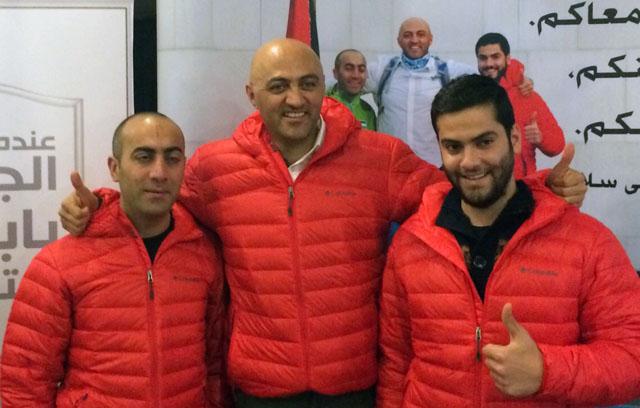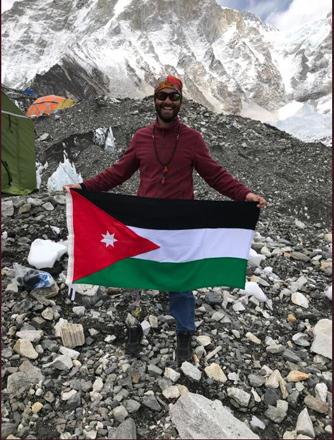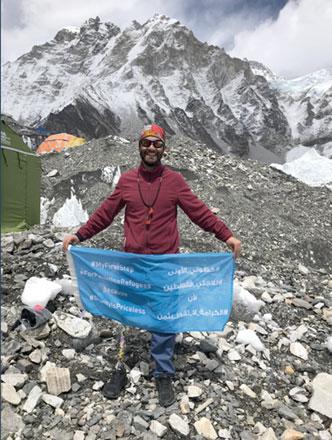You are here
Jordanian amputee, person with visual disability to climb Mount Kilimanjaro
By Mohammad Ghazal - Jan 20,2015 - Last updated at Jan 20,2015

AMMAN — Seeking to deliver a message of peace, determination and that nothing is impossible, a Jordanian with a visual disability and an amputee will soon climb Mount Kilimanjaro, the highest peak in Africa.
The two Jordanians will climb the mountain, some 5,859 metres above sea level, along with Jordanian mountaineer Mostafa Salameh between February 7-15 and as part of the “See No Limit” initiative launched by Salameh, one of only 235 people in the world to scale the Seven Summits.
Suhail Nashash, 31, who lost his eyesight when he was 16 years old after “a medical error”, said his participation in the trek is meant to deliver a message to the world that people with visual disabilities are not different from others.
“We also want to show the world that Islam is a religion of peace, love and moderation, and that it encourages achievements and the appreciation of life,” Nashash told The Jordan Times at the launch of the initiative on Tuesday.
A professional athlete and winner of several gold medals in local, regional and international marathons, Nashash said his participation is meant to change the world’s perceptions.
“When I became blind, I lost hope in life, but after a while and with hard work I returned to my normal life. Nothing is impossible with determination and hard work,” added Nashash, who works at Zain Jordan.
Salameh, who acknowledged that the trip will not be an easy one, told The Jordan Times that Nashash will a be the first Arab with a visual disability to climb the mountain.
“Our objective and message is to give to the world an image of what Islam is — a religion of tolerance and peace,” he said.
Jarrah Hawamdeh, a 19-year-old Jordanian student who lost his right leg after he was diagnosed with cancer three years ago, told The Jordan Times that his participation is meant to give hope to cancer patients and show them that nothing is impossible.
“I am very excited to take part in this hike in Africa,” Hawamdeh said.
Salameh noted that the team will document the trip through photos and videos.
“We want to show the world that even persons who have disabilities can make achievements, progress in life and overcome obstacles.”
Related Articles
AMMAN — After spending 11 days struggling in temperatures so freezing that he “could not feel his face”, 22-year-old Jarrah Al Hawamdeh fina
AMMAN — “After climbing Mount Everest, I feel that I had the power to do anything new for myself and for this world,” recalled Jarrah Al Haw
KILIMANJARO, Tanzania— It is estimated that each year between 35,000-50,000 people attempt to climb Mount Kilimanjaro, but only 60-70 per ce



















